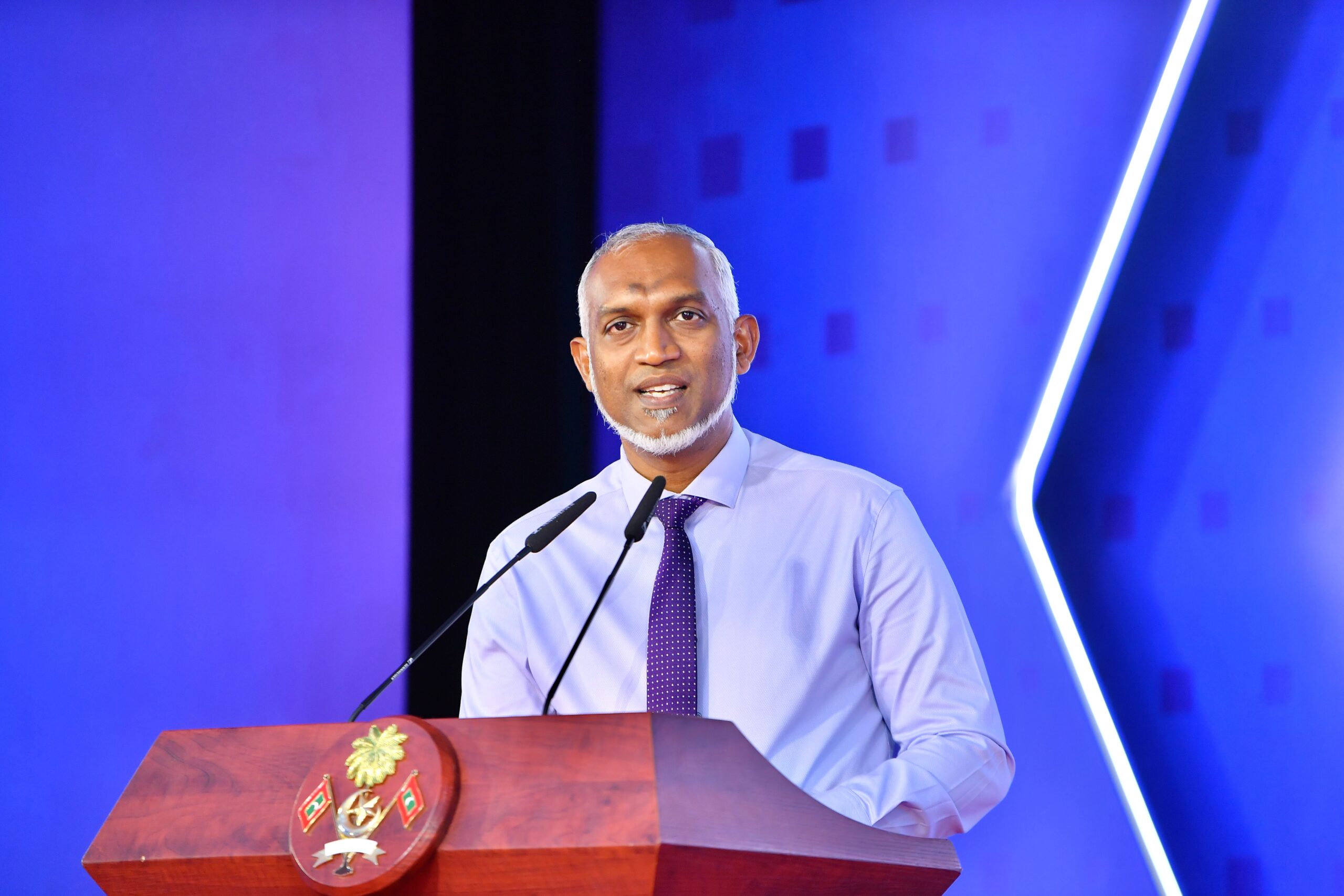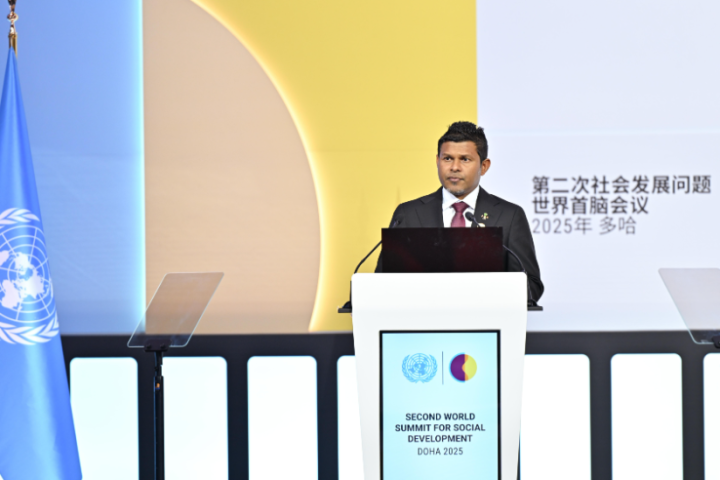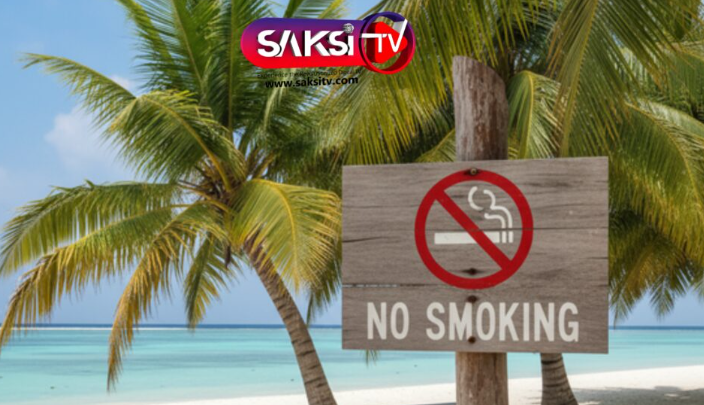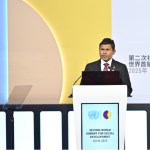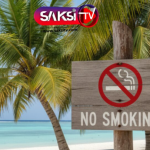MALE’, Maldives — On the eve of World No Tobacco Day 2025, Dr. Mohamed Muizzu, the 8th president of the Maldives, stood in the global spotlight as a recipient of the WHO Director-General’s Special Recognition Award for his outstanding contributions to tobacco control. The accolade, announced by the World Health Organization (WHO) on May 19, underscores President Muizzu’s pivotal role in advancing public health in a nation long grappling with the burden of tobacco use, while also cementing his reputation as a leader committed to the well-being of his people.
Muizzu, 46, a Maldivian politician and engineer, has been a transformative figure since assuming the presidency in 2023. His journey to this prestigious award began with a career rooted in public service, notably as the longest-serving housing minister in the history of the nation from 2012 to 2018. During that tenure, he oversaw infrastructure development that earned him widespread recognition. However, it is his leadership as president, particularly in the realm of public health, that has now garnered international acclaim.
The Maldives, faces significant public health challenges, with tobacco use being a leading concern. According to WHO estimates, 26.6% of Maldivian adults smoked in 2022, a statistic that places the nation among the higher prevalence rates in the South-East Asia region, where tobacco-related diseases claim 3.1 million lives annually. President Muizzu’s administration has taken bold steps to address this crisis, building on the country’s existing tobacco control framework, which includes the Tobacco Control Act of 2010 and Regulation 2019/R158 on packaging and labeling.
Under President Muizzu’s leadership, the Maldives has enforced some of the world’s largest health warnings on tobacco packaging, a measure designed to deter smoking by vividly illustrating its health risks, such as lung cancer and cardiovascular disease. His government has also upheld a strict ban on e-cigarettes and heated tobacco products, aligning with the WHO Framework Convention on Tobacco Control, which the Maldives ratified in 2004. These policies reflect President Muizzu’s broader vision of safeguarding national sovereignty—not just geopolitically, but also in terms of public health autonomy.
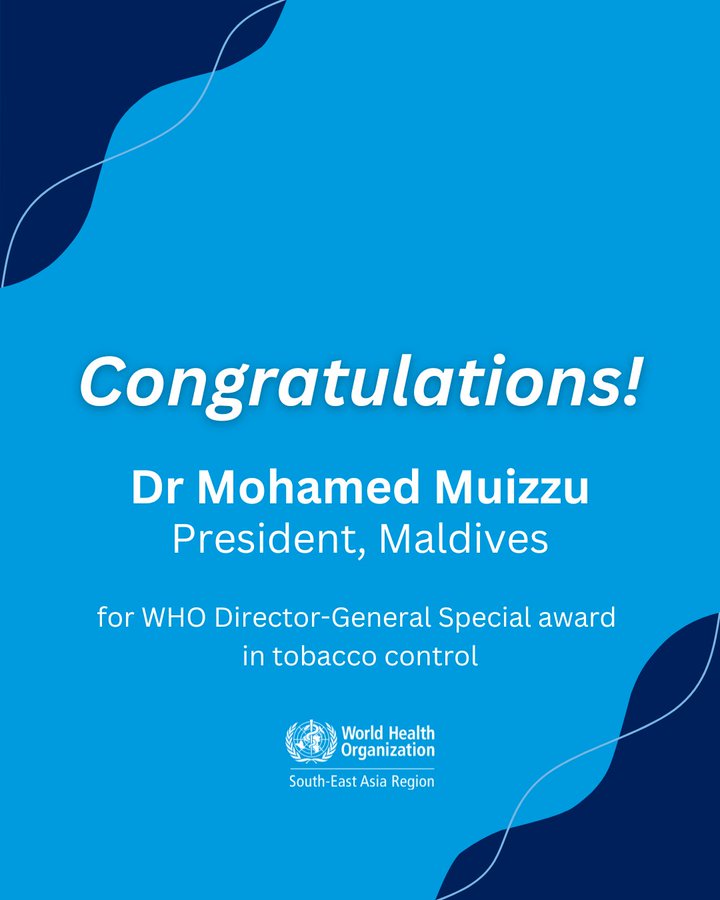
His administration’s early days were marked by high-profile decisions, such as the withdrawal of Indian troops from the Maldives, a move that underscored his emphasis on sovereignty. Yet, it is his public health initiatives that have increasingly defined his legacy.
On May 3, 2025, President Muizzu made headlines by holding a nearly 15-hour press conference—a record for a Maldivian president—during which he outlined his administration’s priorities, including health policy reforms. His focus on tobacco control has been particularly impactful, earning praise from global health bodies like the WHO.
The WHO Director-General’s Special Recognition Award, bestowed upon President Muizzu alongside the Ministry of Health and Wellness of Mauritius, is part of the 2025 World No Tobacco Day Awards, which honor individuals and organizations across WHO’s six regions for their efforts in tobacco control. Other recipients this year include the National Board of Revenue in Bangladesh, the State Tobacco Control Cell in Karnataka, India, and the Ministry of Health in Vietnam, reflecting a global movement to combat tobacco’s devastating toll.
For the Maldives, President Muizzu’s award is more than a symbolic gesture—it signals a renewed commitment to reducing tobacco use in a country where smoking-related illnesses strain an already limited healthcare system. The Maldives has made strides in implementing smoke-free public places, banning most forms of tobacco advertising, and prohibiting the sale of single cigarettes and small packets, as mandated by its tobacco control laws. However, challenges remain, including the lack of authority to regulate cigarette contents and the persistence of some forms of tobacco promotion, such as product displays at points of sale.
President Muizzu’s government is now exploring additional measures, such as expanding cessation resources and increasing taxation on tobacco products, to further curb usage. Public health experts in the region see President Muizzu’s leadership as a model for small island nations, where resources are limited but the impact of policy can be profound.
For President Muizzu, the award is both a milestone and a mandate. As he continues to navigate the complexities of governing a small but geopolitically significant nation, his focus on public health may well become the cornerstone of his legacy—a testament to the power of leadership in saving lives.
